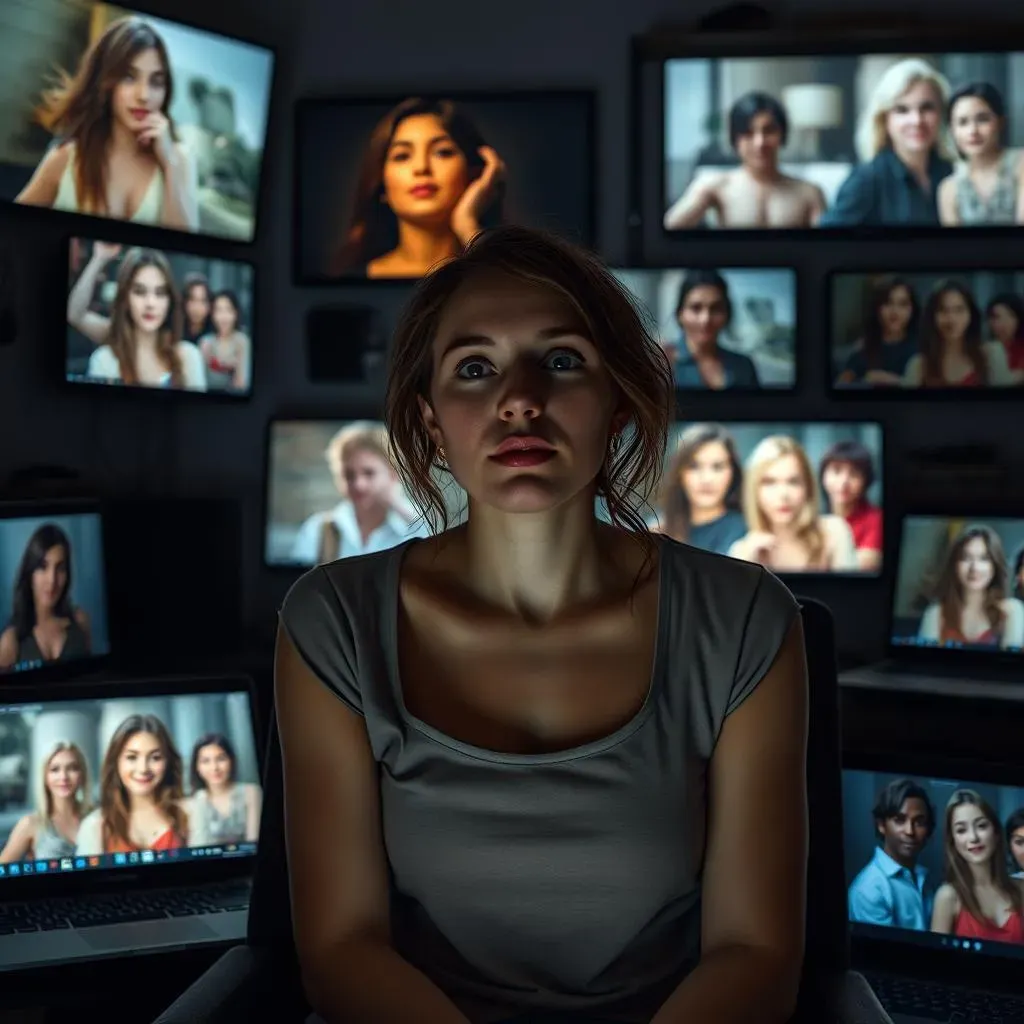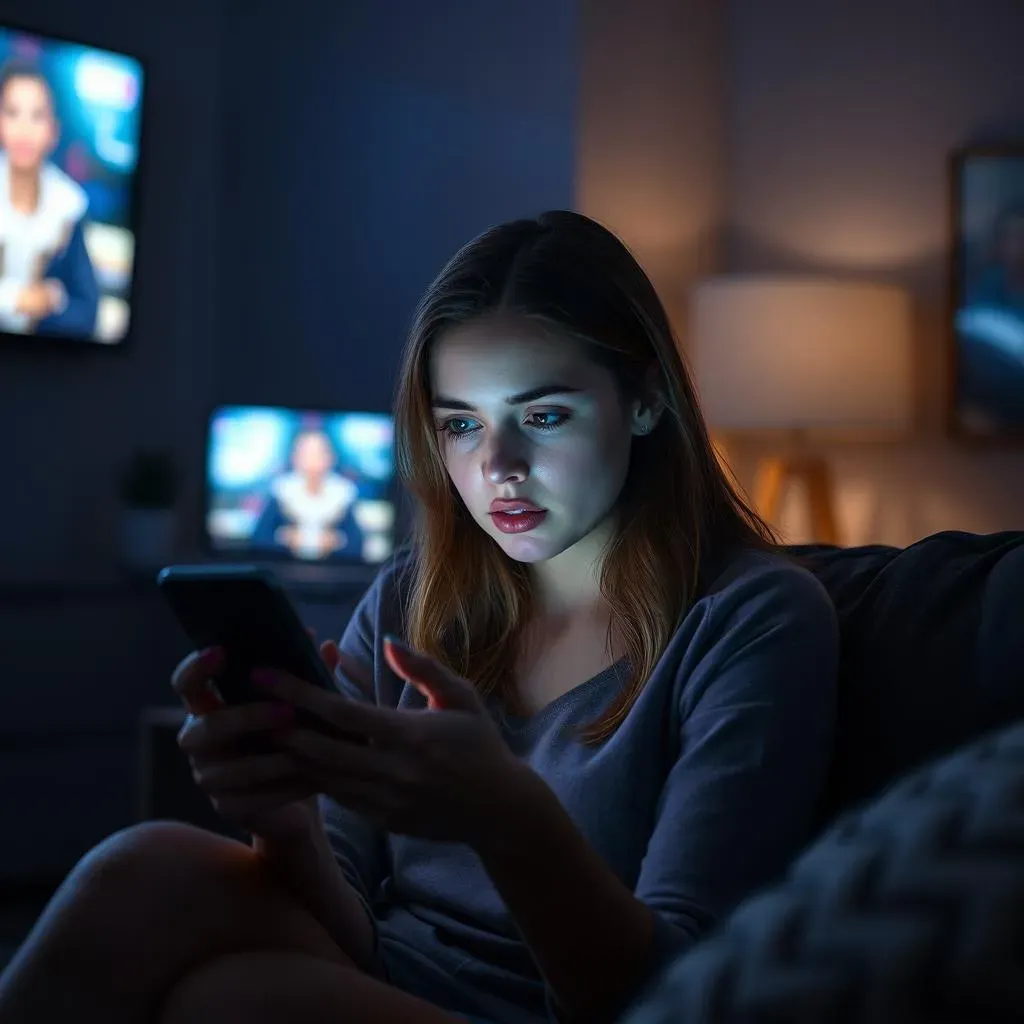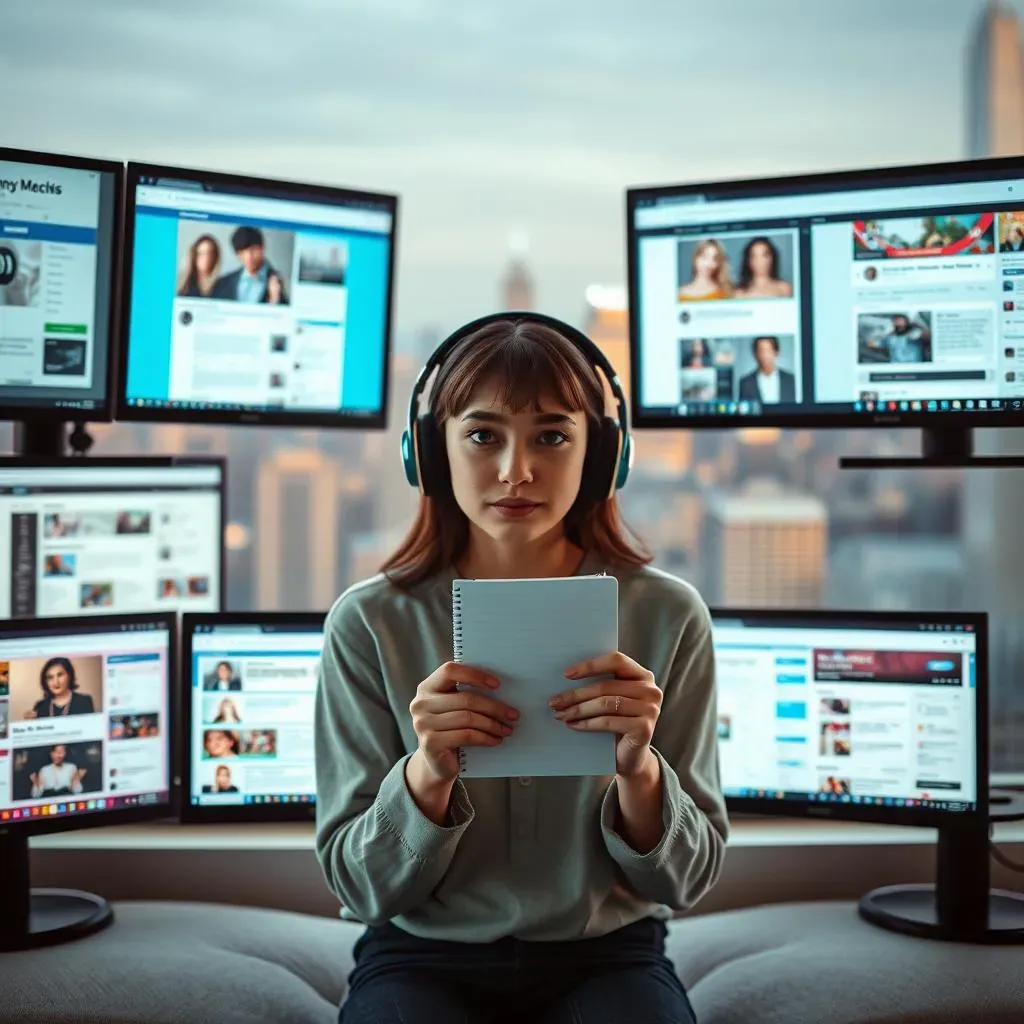Table of Contents
Ever wondered why some people are so obsessed with celebrities? It's more than just liking their movies or music; it's a whole world called celebrity fan culture, and it's way more complex than you might think. In this article, we're going to break down "celebrity fan culture analysis," looking at how it all started, what makes people so drawn to their idols, and how social media has completely changed the game. We will explore the psychology behind the intense feelings some fans have, and how this can sometimes lead to more complicated situations. We'll also check out how social media has made it seem like fans and celebrities are closer than ever, for better or worse. Finally, we'll try to make sense of all this, thinking about what it means to be a fan in today's world. So, if you're curious about why fandoms exist, how they work, and what it all means, stick around – it's going to be an interesting ride.
The Rise of Celebrity Fan Culture and Its Digital Footprint

The Rise of Celebrity Fan Culture and Its Digital Footprint
The Early Days of Fandom
Okay, so, before the internet took over, celebrity fan culture was a totally different beast. Imagine a world where the only way to see your favorite movie star was in a magazine or at the cinema. We're talking about the era of fan clubs sending letters, waiting for autographs, and maybe, just maybe, catching a glimpse of your idol at a premiere. It was all very slow and a bit removed; the connection felt distant, like admiring someone through a telescope. These early forms of fandom were still powerful, but they were limited by the technology of the time. It was a time of shared excitement but also a lot of waiting and hoping, with very little direct interaction between fans and celebrities.
Think about it: back then, fans had to be way more creative. They'd make scrapbooks, write fan letters (which took ages to reach anyone), and form small groups to discuss their favorite stars. There wasn't a way to easily see what other fans were doing, so it felt like a more personal, almost secret passion. It was like having a pen pal with a celebrity, but they never actually wrote back. It was a different kind of intensity, fueled by scarcity of information.
The Internet's Game-Changing Impact
Then BAM! The internet shows up, and everything changes. Suddenly, fans had a direct line – or at least, it felt like it – to their idols. Social media platforms like MySpace, then later Twitter, Facebook, and Instagram, completely flipped the script. Now, you could see what your favorite celebrity ate for breakfast, or read their thoughts on the latest news, all in real-time. This new level of access made fans feel like they were part of their favorite star’s life, creating a sense of closeness that was never possible before. It was like having a backstage pass to their everyday life, even if it was all carefully curated.
The internet also connected fans from all over the world. Suddenly, people who loved the same things could find each other, create online communities, and share their passion. Fan forums, blogs, and later, social media groups became hubs of activity, where fans could discuss, analyze, and celebrate their favorite celebrities together. This sense of community made the whole experience more vibrant and engaging. It was like throwing a global party where everyone was invited to talk about their shared love for a specific celebrity.
Era | Main Channels of Interaction | Fan Experience |
|---|---|---|
Pre-Internet | Fan Clubs, Magazines, Letters | Distant Admiration, Limited Interaction |
Early Internet | Forums, Blogs, Early Social Media | Increased Access, Community Building |
Modern Internet | Social Media, Live Streams, Fan Platforms | Direct Connection, Global Communities |
The Digital Footprint: Amplified Fandom
Today, the digital footprint of celebrity fan culture is enormous. Fandoms have gone from small groups to massive, global movements, with their own language, rituals, and in some cases, even power. Think about how quickly a new song or movie trailer can go viral thanks to fan activity online. Social media isn't just a place where fans follow their idols, it's a platform where they actively participate in shaping celebrity narratives. They create fan art, write fan fiction, organize online campaigns, and even defend their idols against criticism. This digital footprint has become a huge part of the celebrity ecosystem, influencing trends and even impacting careers.
The rise of platforms like TikTok, YouTube, and Twitch has further blurred the lines between celebrity and fan. Now, fans can create their own content, react to celebrity news in real-time, and even build their own followings within the fandom. This has led to a more participatory and dynamic fan culture, where fans are not just passive observers, but active contributors. It's like the audience has taken over the stage and is putting on their own show, inspired by the main act.
Analyzing the Psychology Behind Celebrity Obsession

Analyzing the Psychology Behind Celebrity Obsession
The Allure of the Idol: Why We're Drawn In
Okay, so, what's the deal with being so obsessed with someone you've never met? It's not just about liking their music or movies; there's a lot more going on in our brains. For starters, celebrities often represent something we admire or aspire to. They might have the talent, looks, or lifestyle we wish we had, which makes them seem larger than life. It’s like they're living out a fantasy that we're all kind of watching. This creates a kind of “idol” effect, where we see them as perfect or untouchable, and this can be really appealing, especially if we're feeling a bit insecure or if our own lives feel a bit boring.
This is where things get interesting. Our brains are wired to form connections, and sometimes, we can form these connections with people we only see on screens. It’s called a “parasocial relationship,” and it’s when we feel like we know a celebrity personally, even though they have no idea we exist. This can be really powerful because we get all the benefits of a relationship – feeling connected, entertained, and inspired – without any of the actual effort or risk of real-life relationships. It's like having a best friend who never argues with you and always says the right thing (because it's all scripted, of course).
The Spectrum of Fandom: From Admiration to Obsession
Now, not all fans are created equal. There's a big difference between liking a celebrity and being completely obsessed with them. On one end, you have the casual fan who enjoys their work but doesn’t think about them too much. Then, you have the passionate fan who buys all their merch, goes to every concert, and spends a lot of time online discussing them. And then, you have the extreme fan, who might start to blur the lines between reality and fantasy. This level of obsession can sometimes lead to some not-so-healthy behaviors, like stalking, harassment, or even just neglecting their own lives.
It's not really a black-and-white thing; it's more like a sliding scale. When fandom starts to interfere with your life, your relationships, or your mental well-being, that's a red flag. It’s like when you’re enjoying a delicious treat, but you’re eating so much that it starts to make you feel sick. The key is to keep things in perspective and remember that celebrities are people, not gods. Also, it’s important to keep a healthy distance, and not let the celebrity world take over your own.
Type of Fan | Engagement Level | Behavior Examples | Potential Impact |
|---|---|---|---|
Casual Fan | Low | Enjoys their work, occasional social media follow | Minimal |
Passionate Fan | Medium | Buys merch, attends events, online discussions | Moderate |
Extreme Fan | High | Obsessive behavior, stalking, neglects own life | Significant, potentially negative |
The Psychological Factors at Play
So, what kind of psychological stuff might be happening when someone gets super into a celebrity? Well, there's a mix of things that can come into play. For some people, it might be about filling a void in their own lives. If they're feeling lonely or disconnected, the illusion of a relationship with a celebrity can feel really comforting. It's like they've found a friend who understands them, even if it's just in their imagination. For others, it might be about seeking a sense of identity. If they’re not sure who they are, they might start to adopt the personality and values of their favorite celebrity. It's like wearing a costume to feel more confident, but it’s a costume you never take off.
Also, there's a little thing called "escapism," which is when we use fantasy to avoid real life. For some, celebrity obsession is a way to escape from their problems and worries. They can get lost in the world of their favorite celebrity and forget about everything else. It's like watching a movie so good that you forget about your own life for a while. The problem is, real life eventually comes back, and if you've spent too much time escaping, it can feel even harder to deal with. It's a delicate balance, and it’s important to be aware of why you're so drawn to a particular celebrity. It’s like being a detective in your own life, trying to figure out what’s really going on.
The Impact of Social Media on CelebrityFan Dynamics

The Impact of Social Media on CelebrityFan Dynamics
The Illusion of Closeness: Direct Access
Okay, so social media has totally changed how fans and celebrities interact. Before, it was all very one-sided; fans would admire from afar, but now, it feels like we're all in the same room. Celebrities are on Instagram, Twitter, TikTok, and all these other platforms, sharing bits of their lives. This creates a sense of direct access that never existed before. It's like we're getting a sneak peek behind the curtain, seeing the "real" person behind the fame. Now, I'm not saying it's actually real, because let's face it, it's all curated, but it sure feels like it. It's like watching a reality show where the main character is your favorite celebrity.
This direct access has also blurred the lines between celebrity and fan. Fans can now comment directly on a celebrity's posts, share their own thoughts, and even get a response (sometimes). It's like having a conversation with your idol, even if it's just a few seconds of interaction. This has created a sense of community and connection that has fueled fan culture, but it's also led to some pretty complicated dynamics. It's like having the whole world invited to a dinner party, and everyone has an opinion about what's on the menu. Sometimes, it's great, and other times it can get overwhelming.
The Power of the Fan: Amplified Voices
Social media hasn't just given celebrities a platform; it’s also given fans a voice. Now, fans can organize campaigns, start trends, and even influence what celebrities do. Think about how many times a fan hashtag has gone viral, or how many times a celebrity has changed their mind because of fan feedback. This has created a new power dynamic where fans are not just passive observers, but active participants in shaping celebrity narratives. It's like the audience has taken over the director's chair, and they're now calling the shots.
This power can be a good thing, when fans are using their voices to promote positive change, but it can also be a bad thing, when fans are using it to harass or bully others. The speed at which information and opinions spread online can be dangerous, especially when it comes to fan culture. It's like giving everyone a megaphone, and sometimes, people end up using it to shout at each other, instead of having a conversation. It's important to remember that with great power comes great responsibility, and that goes for both celebrities and fans alike.
Navigating the New Normal: Challenges and Opportunities
So, where does this leave us? Well, social media has created a new normal for celebrity fan culture. It’s a world where the lines between real and fake are constantly blurred, where fans have more power than ever before, and where the potential for both good and bad is enormous. It’s like we're all navigating a maze, where the walls are constantly shifting, and we’re not always sure which way to go. It's exciting, but also a little scary.
The challenge now is to figure out how to navigate this new landscape. How do we maintain a healthy relationship with celebrities when it feels like we're constantly bombarded with information about their personal lives? How do we use our power as fans responsibly? How do we make sure that fan culture remains a positive and inclusive space for everyone? It's not going to be easy, but it's essential if we want to make sure that this new dynamic is a good thing for both fans and celebrities. It's like we're all learning a new language, and we have to work together to understand what it means and how to use it wisely.
Impact of Social Media | Positive Aspects | Negative Aspects |
|---|---|---|
Direct Access | Sense of connection, behind-the-scenes glimpses | Illusion of reality, potential for oversharing |
Fan Empowerment | Ability to influence, create communities, support causes | Potential for harassment, mob mentality, cancel culture |
Blurred Lines | More personal interaction, increased engagement | Difficulty maintaining boundaries, parasocial relationships |
Navigating the Complexities of Modern Celebrity Fan Culture

Navigating the Complexities of Modern Celebrity Fan Culture
Finding a Healthy Balance: Staying Grounded
Alright, so we've talked about the crazy world of celebrity fan culture and how it's all changed. Now, the big question is: how do we enjoy being a fan without losing our minds? First off, it's super important to keep things in perspective. Remember that celebrities are just people, not superheroes. What you see online is often a carefully crafted image, not necessarily the whole truth. It's like looking at a really cool picture of a cake; it might look perfect, but it doesn't tell you if it tastes good or if it was easy to make. So, try not to get too caught up in the fantasy and keep a healthy distance between their world and your own.
Another thing to keep in mind is that your real life matters way more than any celebrity's. Don't let your passion for a celebrity take over your friendships, your hobbies, or your goals. It's awesome to have something you're super excited about, but not if it means missing out on the real things that make you happy. It's like having a really cool video game; it's fun to play, but if you play it all day every day, you're going to miss out on the real world. So, try to find a balance and make sure that your life is as awesome as the celebrity you admire.
Responsible Fandom: Being a Positive Force
Okay, so, being a fan isn't just about liking a celebrity; it's also about how you act as a fan. It's super important to be respectful and kind, both to the celebrity and to other fans. Remember that there are real people behind the screens, and your words can have a real impact. Don't get caught up in online drama, and try to be a positive voice in the fan community. It's like being part of a team; you want to support each other, not tear each other down.
Also, it's important to be critical and not just blindly follow everything a celebrity does or says. It's okay to disagree, it's okay to have your own opinions, and it's okay to call out bad behavior. A healthy fan culture is one where people can have open discussions, where everyone feels safe and respected. Think of it like a classroom; you want to learn and grow together, not just nod your head in agreement all the time. So, let's try to be the kind of fans that make the world a better place, one positive comment at a time.
Aspect of Healthy Fandom | What it Looks Like | What it Avoids |
|---|---|---|
Perspective | Remembering celebrities are people, not gods. | Losing touch with reality, idolizing to an unhealthy extent. |
Balance | Prioritizing real-life relationships and goals. | Letting fandom take over all aspects of life. |
Respect | Being kind to celebrities and other fans. | Engaging in online drama, harassment, or bullying. |
Critical Thinking | Forming your own opinions and calling out bad behavior. | Blindly following everything a celebrity does or says. |